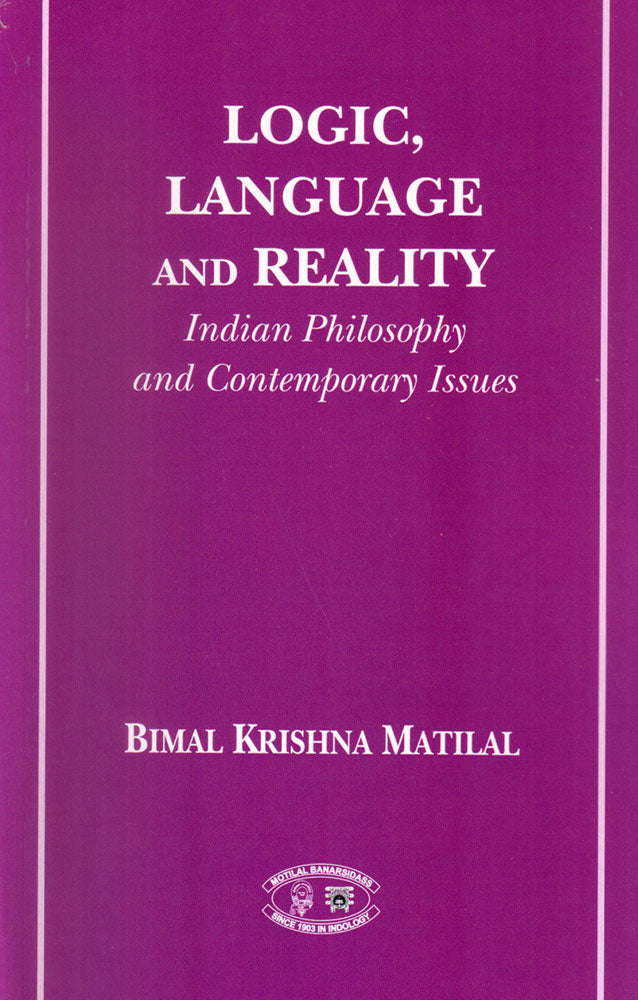Logic, Language and Reality: (Indian Philosophies and Contemporary Issues)
Logic, Language and Reality: (Indian Philosophies and Contemporary Issues) - Hardcover is backordered and will ship as soon as it is back in stock.
Couldn't load pickup availability
The word 'philosophy' as well as the conjuring expression 'Indian philosophy' has meant different things to different people-endeavours and activities, old and new, grave and frivolous, edifying and banal, esoteric and exoteric. In this book, the author has chosen deliberately a very dominant trend of the classical (Sanskrit) philosophical literature as his subject of study. The age of the material used here demands both philological scholarship and philosophical amplification. Classical pramanasastras usually deal with the theory of knowledge, the nature of inference and language, and the related questions of ontology and semantics. Several important concepts and theories have been singled out for critical analysis and clarification in modern terms so that the results may be intelligible to modern students of both Sanskrit and philosophy. It is hoped that such attempt will kindle the enthusiasm of young scholars in the field and inspire them to proceed in this comparatively new area of research and explore into further and more interesting possibilities.
Review(s)
Logic, Language and Reality contains much Sanskritic scholarship that will make it more immediately accessible to the IndologistÄMatilal reconstructs arguments and positions with special reference to modern analytical philosophyÄ Every chapter is abundant in suggestive remarks about the appositeness of Indian theories to modern problems ... indeed, part of the intellectual excitement of reading the books is in the many possibilities for future philosophical research that it opens up. - Roy W. Perrett, Book reviews-South Asia
About the Author(s)
The Late Bimal Krishna Matilal was jubilee scholar in 1954-56, and recipient of Hem Chandra Goswami Prize and Gold Medal in 1956. He started teaching at the University of Toronto, Canada in 1965. He was Spalding Professor of Eastern Religions and Ethics at the University of Oxford. He was the author of The Word and the World: India's Contribution to the Philosophy of Language (OUP India, 1990), Perception: An Essay on Classical Indian Theories of Knowledge (2016), and Logical and Ethical Issues of Religious Belief (1982), and the editor of Moral Dilemmas in the Mahabharata (1989).
-
Pages
-
Edition
-
Size
-
Condition
-
Language
-
Weight (kg)
-
Publication Year
-
Country of Origin
-
Territorial Rights
-
Reading Age
-
HSN Code
-
Publisher




